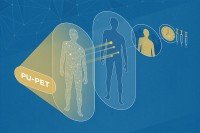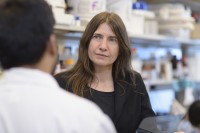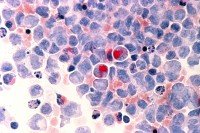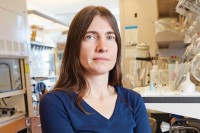
MSK Research Highlights, November 6, 2024
New MSK research marks a potential advance against RAS-driven cancers; breaks down data silos to better predict cancer outcomes with the help of artificial intelligence (AI); identifies two enzymes vital for maintaining brain health; uncovers how changes to “helper” proteins drive cancer cell survival; develops a new model for investigating lung cancer metastasis; and uses AI to improve outcome predictions in sarcoma.

MSK Research Highlights, June 29, 2023
New MSK research discovered ferroptosis regulators that suggest therapeutic opportunities against hormone receptor-positive cancers; examined how tumor-associated macrophages might be turned against cancer; acquired new insights into joint inflammation in rheumatoid arthritis; developed a systems-level platform called epichaperomics to map changes in interactors among thousands of proteins involved in cancer-related processes; and investigated how artificial intelligence could help diagnose an invasive form of breast cancer.
In the Lab

Experimental Drug Targets Misbehaving Proteins in Brain Cancer and Alzheimer’s Disease
Memorial Sloan Kettering researchers are studying how drugs that reverse malfunctioning proteins may treat disease.
In the Lab

Just Add Sugar: How a Protein’s Small Change Leads to Big Trouble for Cells
A study from investigators in the Sloan Kettering Institute uncovers the details of how a key protein called GRP94 becomes disrupted, leading to cancer and other diseases.
In the Lab

Bull’s-Eye: Imaging Technology Could Confirm When a Drug Is Going to the Right Place
Collaborative team advances a new approach for imaging a drug that’s been developed to stop cancer growth.
Finding

Study Reveals a New Way That Stress and Aging Lead to Alzheimer’s
A targeted approach being developed to treat certain cancers may also be effective for Alzheimer’s disease.
In the Clinic

Experimental Cancer Drug Developed at MSK Leads to New Approach for Treating Alzheimer's Disease
A family of drugs developed at MSK targets disrupted processes in cells in diseases related to aging.
In the Lab

New Drug Developed at MSK Starves Acute Myeloid Leukemia of a Signaling Fix
An innovative collaboration between basic scientists and clinical researchers has led to a promising new drug for AML.
In the Lab

Communal Behavior within Cells Makes Cancers Easier to Target
Findings about proteins called molecular chaperones are shedding new light on possible approaches to cancer treatment.
Finding

Hsp90: A Very Promising Target for Cancer Therapy
A small molecule discovered at MSK called PU-H71 blocks the growth of cancer cells and enables doctors to image tumors.

Out of the Lab and into the World: Hsp90 Inhibitor, a New Cancer Drug
A dynamic mix of experts in biology, chemistry, and medicine come together in the Sloan Kettering Institute lab of chemical biologist Gabriella Chiosis to investigate chaperone proteins involved in cancer.










